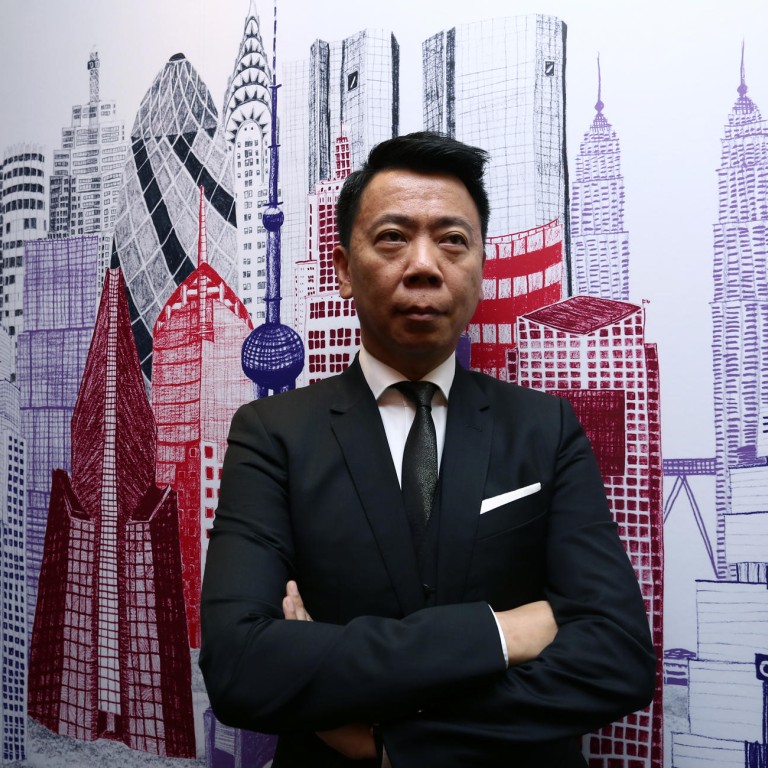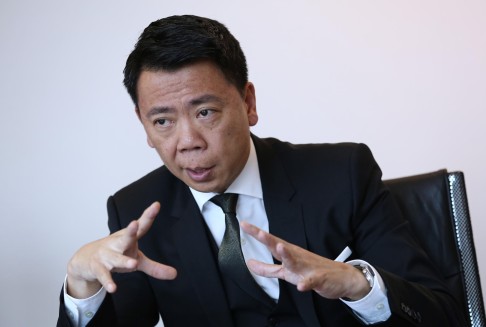
Things have changed on mainland, says Grant Thornton boss
With the mainland's accounting standards fast catching up, Daniel Lin says the rebirth enables the firm to tap opportunities across the border
Accounting firm Grant Thornton has a problematic history in Hong Kong.

The exiting partners protested against what they believed would be diminished standards at the firm once it was subsumed into the mainland operations.
Staff were forced to choose sides. Either stay with Grant Thornton, integrated with the mainland and with the mainland as the dominant partner, or leave. Lin, who grew up in Hong Kong and was trained in Britain, chose the former.
Hong Kong is only a city and an international accounting firm cannot survive in just a city
"A lot of our clients have operations in China. Hong Kong is only a city and an international accounting firm cannot survive in just a city. So I think the strategy was correct to build a nationwide firm that includes Hong Kong," Lin said.
"Remain independent, well you can try, but for how long? It's like in the 1980s. Margaret Thatcher can go up to China and tell Deng Xiaoping 'sorry, we don't want to pass sovereignty back to you, we will continue to be independent'. [But] there is no point really."
Lin's media handlers proposed an interview about corporate governance, an intriguing topic given the firm's recent history. Grant Thornton's former Hong Kong managing partner, Gabriel Azedo, left the city in 2009, allegedly absconding with HK$90 million of client money.
But Lin was keener to discuss more recent happenings.
He said the most difficult question he faced was: how does a mainland accounting firm, into which the Hong Kong operation is now integrated, persuade the market that it meets the highest standards of international practice?
The mainland is known for slack corporate governance, embezzlement, bribery and fraud, often aided and abetted by local accounting firms.
Given that Grant Thornton is effectively selling the credibility of its name when it signs off on a company's accounts, the fact that the Hong Kong operation is controlled by a chief executive who sits in Beijing creates perception problems.
"From a business perspective, it's normally a big plus, but for recruiting talent, especially the younger people, they say 'oh you are a China firm, which to me is good, but for them there may be a different take'," Lin said.
"That's why when we moved from Causeway Bay to [Wan Chai] … the first choice from a partners' perspective was the China Resources Building. But if we moved to the China Resources Building, it would put another label [on the business]," he said, laughing.
Lin said he recently pitched to do the auditing of a large Nanjing-based firm. Part of his pitch was that Grant Thornton had lots of local talent and had an office in Nanjing.
The company's chief financial officer, a Hongkonger, told him that she would only work with Hong Kong-based accountants - no mainlanders - and paid a hefty premium for that.
"So I put away all those materials and I had to regroup before I gave her another set of documents, but then I tried to understand why," Lin said.
"The reason was that she was already working with that firm 10 years ago [at its initial public offering], and she was looking back to the experience she had 10 years ago [using mainland auditors], and said the standards are not good enough … But that was 10 years ago. Things have changed."

The Ministry of Finance published a consultation paper earlier this year saying it wanted foreign accounting firms to "cooperate" with mainland auditors when working for a mainland client. The ministry left ambiguous what it meant by cooperate. But Grant Thornton will find such cooperation seamless, given its integration into the mainland firm.
The firm has taken its hits. Grant Thornton's Hong Kong office today has about 200 staff, compared with the roughly 450 staff it employed just before the expulsion.
Lin clearly views the mainland integration as an inevitability that needed to be managed in the most constructive way. However, there seems to be a small part of him that wonders if it could have been handled in a different way.
"I'm still wondering if Margaret Thatcher didn't ask Deng Xiaoping 'by the way, we want to extend the lease in 1997', maybe nobody would do anything," he said.
